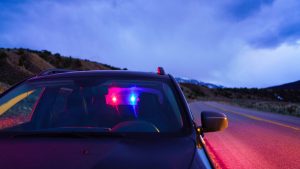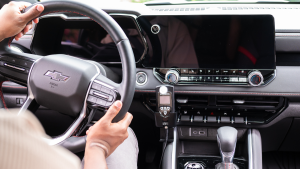To convict a person of driving under the influence in California, the prosecutor must prove that the defendant was too impaired to drive with the caution and care of a sober person under similar circumstances.
Yet that is not enough for a conviction. The State must also prove that the defendant actually drove. Sitting in a car with the engine running is not a violation of California Vehicle Code section 23152 (driving under the influence, or driving with an alcohol concentration of .08 percent or higher). There must be volitional movement of the vehicle or there is no “driving” within the meaning of California’s drunk driving law.
Yet even proof that (1) the defendant drove; and (2) the defendant was too impaired to drive, is still not enough for a conviction. Why? Because the government must also prove beyond a reasonable doubt that when the defendant drove he was too impaired to drive with the caution and care of a sober person under similar circumstances.
Not infrequently, the police do not actually see the defendant driving. They may happen upon him while he is parked on the side of the road. They may get a report regarding a possible drunk driver, but not make contact with the defendant until he has gone home and consumed alcohol.
Sometimes the defendant was not the driver, but somebody identifies him as the driver. When the police apprehend a person they suspect may have been driving but they didn’t see it (usually based on vehicle registration or proximity to a reported vehicle), they will sometimes have a third party brought to the scene to see if they can identify the apprehended person as the driver. This procedure is fraught with problems. Obviously, showing a citizen a person being detained by the police as a DUI suspect is a highly suggestive way to have them identify the person they saw driving (usually at night). These suggestive forms of identification have resulted in many false convictions, including cases involving drunk driving charges.
Recognizing that misidentification is the leading cause of wrongful convictions in America, the New Jersey Supreme Court just issued new rules for trial courts that are likely to be adopted by many other States. The Court declared that whenever a criminal defendant presents evidence that an identification of him was influenced by law enforcement, the trial court must hold a hearing outside the presence of the jury to consider more than a dozen factors such as lighting and proximity, witness stress, amount of time for identifying the suspect, passage of time, any alcohol or drug use by the witness, and police conduct in arranging the identification.
Under the New Jersey rules, trial courts have the discretion to exclude a witness’s identification if there are too many problems to make it reasonably reliable. Even if the identification is admitted into evidence though, the trial court must instruct jurors about the problems associated with eyewitness identification.
Contact Paul Burglin to consult with a Board-Certified DUI defense attorney in California.

